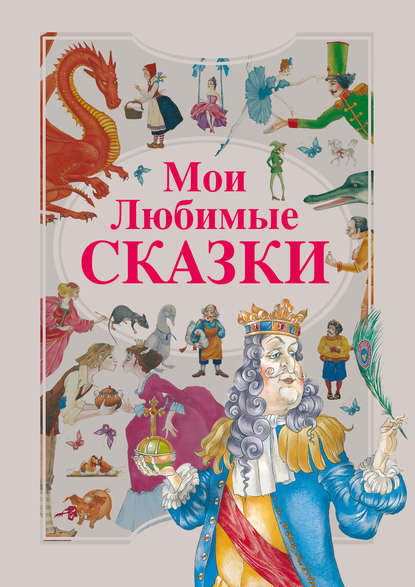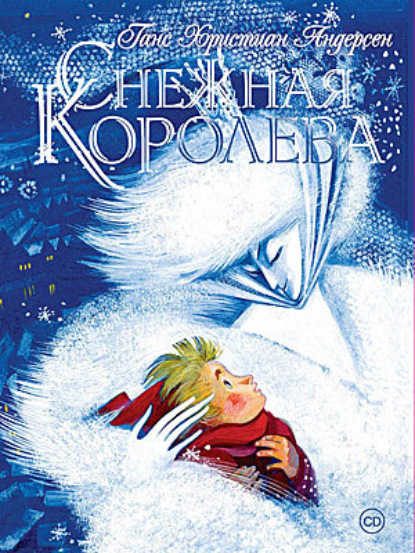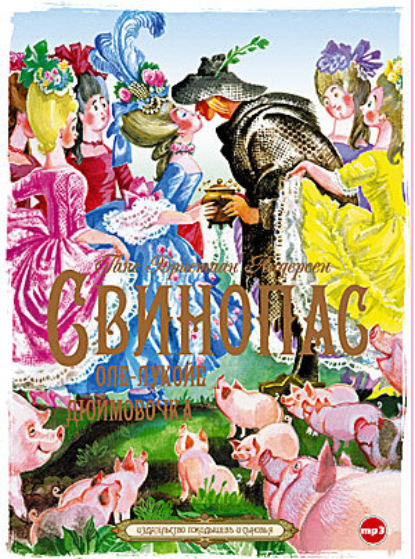 Полная версия
Полная версияПолная версия:
Ганс Христиан Андерсен O. T., A Danish Romance
- + Увеличить шрифт
- - Уменьшить шрифт

H. C. Andersen
O. T., A Danish Romance
CHAPTER I
“Quod felix faustumque sit!”
There is a happiness which no poet has yet properly sung, which no lady-reader, let her be ever so amiable, has experienced or ever will experience in this world. This is a condition of happiness which alone belongs to the male sex, and even then alone to the elect. It is a moment of life which seizes upon our feelings, our minds, our whole being. Tears have been shed by the innocent, sleepless nights been passed, during which the pious mother, the loving sister, have put up prayers to God for this critical moment in the life of the son or the brother.
Happy moment, which no woman, let her be ever so good, so beautiful, or intellectual, can experience—that of becoming a student, or, to describe it by a more usual term, the passing of the first examination!
The cadet who becomes an officer, the scholar who becomes an academical burgher, the apprentice who becomes a journeyman, all know, in a greater or less degree, this loosening of the wings, this bounding over the limits of maturity into the lists of philosophy. We all strive after a wider field, and rush thither like the stream which at length loses itself in the ocean.
Then for the first time does the youthful soul rightly feel her freedom, and, therefore, feels it doubly; the soul struggles for activity, she comprehends her individuality; it has been proved and not found too light; she is still in possession of the dreams of childhood, which have not yet proved delusive. Not even the joy of love, not the enthusiasm for art and science, so thrills through all the nerves as the words, “Now am I a student!”
This spring-day of life, on which the ice-covering of the school is broken, when the tree of Hope puts forth its buds and the sun of Freedom shines, falls with us, as is well known, in the month of October, just when Nature loses her foliage, when the evenings begin to grow darker, and when heavy winter-clouds draw together, as though they would say to youth,—“Your spring, the birth of the examination, is only a dream! even now does your life become earnest!” But our happy youths think not of these things, neither will we be joyous with the gay, and pay a visit to their circle. In such a one our story takes its commencement.
CHAPTER II
“At last we separate:To Jutland one, to Fünen others go;And still the quick thought comes,—A day so bright, so full of fun,Never again on us shall rise.”—CARL BAGGER.It was in October of the year 1829. Examen artium had been passed through. Several young students were assembled in the evening at the abode of one of their comrades, a young Copenhagener of eighteen, whose parents were giving him and his new friends a banquet in honor of the examination. The mother and sister had arranged everything in the nicest manner, the father had given excellent wine out of the cellar, and the student himself, here the rex convivii, had provided tobacco, genuine Oronoko-canaster. With regard to Latin, the invitation—which was, of course, composed in Latin—informed the guests that each should bring his own.
The company, consisting of one and twenty persons—and these were only the most intimate friends—was already assembled. About one third of the friends were from the provinces, the remainder out of Copenhagen.
“Old Father Homer shall stand in the middle of the table!” said one of the liveliest guests, whilst he took down from the stove a plaster bust and placed it upon the covered table.
“Yes, certainly, he will have drunk as much as the other poets!” said an older one. “Give me one of thy exercise-books, Ludwig! I will cut him out a wreath of vine-leaves, since we have no roses and since I cannot cut out any.”
“I have no libation!” cried a third,—“Favete linguis.” And he sprinkled a small quantity of salt, from the point of a knife, upon the bust, at the same time raising his glass to moisten it with a few drops of wine.
“Do not use my Homer as you would an ox!” cried the host. “Homer shall have the place of honor, between the bowl and the garland-cake! He is especially my poet! It was he who in Greek assisted me to laudabilis et quidem egregie. Now we will mutually drink healths! Jörgen shall be magister bibendi, and then we will sing ‘Gaudeamus igitur,’ and ‘Integer vitae.’”
“The Sexton with the cardinal’s hat shall be the precentor!” cried one of the youths from the provinces, pointing toward a rosy-cheeked companion.
“O, now I am no longer sexton!” returned the other laughing. “If thou bringest old histories up again, thou wilt receive thy old school-name, ‘the Smoke-squirter.’”
“But that is a very nice little history!” said the other. “We called him ‘Sexton,’ from the office his father held; but that, after all, is not particularly witty. It was better with the hat, for it did, indeed, resemble a cardinal’s hat. I, in the mean time, got my name in a more amusing manner.”
“He lived near the school,” pursued the other; “he could always slip home when we had out free quarters of an hour: and then one day he had filled his mouth with tobacco smoke, intending to blow it into our faces; but when he entered the passage with his filled cheeks the quarter of an hour was over, and we were again in class: the rector was still standing in the doorway; he could not, therefore, blow the smoke out of his mouth, and so wished to slip in as he was. ‘What have you there in your mouth?’ asked the rector; but Philip could answer nothing, without at the same time losing the smoke. ‘Now, cannot you speak?’ cried the rector, and gave him a box on the ear, so that the smoke burst through nose and mouth. This looked quite exquisite; the affair caused the rector such pleasure, that he presented the poor sinner with the nota bene.”
“Integer vitae!” broke in the Precentor, and harmoniously followed the other voices. After this, a young Copenhagener exhibited his dramatic talent by mimicking most illusively the professors of the Academy, and giving their peculiarities, yet in such a good-natured manner that it must have amused even the offended parties themselves. Now followed the healths—“Vivant omnes hi et hae!”
“A health to the prettiest girl!” boldly cried one of the merriest brothers. “The prettiest girl!” repeated a pair of the younger ones, and pushed their glasses toward each other, whilst the blood rushed to their cheeks at this their boldness, for they had never thought of a beloved being, which, nevertheless, belonged to their new life. The roundelay now commenced, in which each one must give the Christian name of his lady-love, and assuredly every second youth caught a name out of the air; some, however, repeated a name with a certain palpitation of the heart. The discourse became more animated; the approaching military exercises, the handsome uniform, the reception in the students’ club, and its pleasures, were all matters of the highest interest. But there was the future philologicum and philosophicum—yes, that also was discussed; there they must exhibit their knowledge of Latin.
“What do you think,” said one of the party, “if once a week we alternately met at each other’s rooms, and held disputations? No Danish word must be spoken. This might be an excellent scheme.”
“I agree to that!” cried several.
“Regular laws must be drawn up.”
“Yes, and we must have our best Latin scholar, the Jutlander, Otto Thostrup, with us! He wrote his themes in hexameters.”
“He is not invited here this evening,” remarked the neighbor, the young Baron Wilhelm of Funen, the only nobleman in the company.
“Otto Thostrup!” answered the host. “Yes, truly he’s a clever fellow, but he seems to me so haughty. There is something about him that does not please me at all. We are still no dunces, although he did receive nine prae caeteris!”
“Yet it was very provoking,” cried another, “that he received the only Non in mathematics. Otherwise he would have been called in. Now he will only have to vex himself about his many brilliant characters.”
“Yes, and he is well versed in mathematics!” added Wilhelm “There was something incorrect in the writing; the inspector was to blame for that, but how I know not. Thostrup is terribly vehement, and can set all respect at defiance; he became angry, and went out. There was only a piece of unwritten paper presented from him, and this brought him a cipher, which the verbal examination could not bring higher than non. Thostrup is certainly a glorious fellow. We have made a tour together in the steamboat from Helsingöer to Copenhagen, and in the written examination we sat beside each other until the day when we had mathematics, and then I sat below him. I like him very much, his pride excepted; and of that we must break him.”
“Herr Baron,” said his neighbor, “I am of your opinion. Shall not we drink the Thou-brotherhood?”
“To-night we will all of us drink the Thou!” said the host; “it is nothing if comrades and good friends call each other you.”
“Evoe Bacchus!” they joyously shouted. The glasses were filled, one arm was thrown round that of the neighbor, and the glasses were emptied, whilst several commenced singing “dulce cum sodalibus!”
“Tell me what thou art called?” demanded one of the younger guests of his new Thou-brother.
“What am I called?” replied he. “With the exception of one letter, the same as the Baron.”
“The Baron!” cried a third; “yes, where is he?”
“There he stands talking at the door; take your glasses! now have all of us drank the Thou-brotherhood?”
The glasses were again raised; the young Baron laughed, clinked his glass, and shouted in the circle, “Thou, Thou!” But in his whole bearing there lay something constrained, which, however, none of the young men remarked, far less allowed themselves to imagine that his sudden retreat, during the first drinking, perhaps occurred from the sole object of avoiding it. But soon was he again one of the most extravagant; promised each youth who would study theology a living on his estate when he should once get it into his own hands; and proposed that the Latin disputations should commence with him, and on the following Friday. Otto Thostrup, however, should be of the party—if he chose, of course being understood; for he was a capital student, and his friend they had made a journey together and had been neighbors at the green table.
Among those who were the earliest to make their valete amici was the Baron. Several were not yet inclined to quit this joyous circle. The deepest silence reigned in the streets; it was the most beautiful moonlight. In most houses all had retired to rest—only here and there was a light still seen, most persons slept, even those whose sense of duty should leave banished the god of sleep: thus sat a poor hackney-coachman, aloft upon his coach-box, before the house where he awaited his party, and enjoyed, the reins wound about his hand, the much-desired rest. Wilhelm (henceforth we will only call the young Baron by his Christian name) walked alone through the street. The wine had heated his northern blood—besides which it never flowed slowly; his youthful spirits, his jovial mood, and the gayety occasioned by the merry company he had just quitted did not permit him quietly to pass by this sleeping Endymion. Suddenly it occurred to him to open the coach-door and leap in; which having done, he let the glass fall and called out with a loud voice, “Drive on!” The coachman started up out of his blessed sleep and asked, quite confused, “Where to?” Without reflecting about the matter, Wilhelm cried, “To the Ship in West Street.” The coachman drove on; about half-way, Wilhelm again opened the coach-door, a bold spring helped him out, and the coach rolled on. It stopped at the public-house of the Ship. The coachman got down and opened the door; there was no one within; he thrust his head in thoroughly to convince himself; but no, the carriage was empty! “Extraordinary!” said the fellow; “can I have dreamed it? But still I heard, quite distinctly, how I was told to drive to the Ship! Lord preserve us! now they are waiting for me!” He leaped upon the box and drove rapidly back again.
In the mean time Wilhelm had reached his abode in Vineyard Street; he opened a window to enjoy the beautiful night, and gazed out upon the desolate church-yard which is shut in by shops. He had no inclination for sleep, although everything in the street, even the watchmen not excepted, appeared to rejoice the gift of God. Wilhelm thought upon the merry evening party, upon his adventure with the poor hackney-coachman, then took down his violin from the wall and began to play certain variations.
The last remaining guests from the honorable carousal, merrier than when Wilhelm left them, now came wandering up the street. One of them jodeled sweetly, and no watchman showed himself as a disturbing principle. They heard Wilhelm violin and recognized the musician.
“Play us a Française, thou up there!” cried they.
“But the watchman?” whispered one of the less courageous.
“Zounds, there he sits!” cried a third, and pointed toward a sleeping object which leaned its head upon a large wooden chest before a closed booth.
“He is happy!” said the first speaker. “If we had only the strong Icelander here, he would soon hang him up by his bandelier upon one of the iron hooks. He has done that before now; he has the strength of a bear. He seized such a lazy fellow as this right daintily by his girdle on one of the hooks at the weighing-booth. There hung the watchman and whistled to the others; the first who hastened to the spot was immediately hung up beside him, and away ran the Icelander whilst the two blew a duet.”
“Here, take hold!” cried one of the merry brothers, quickly opening the chest, the lid of which was fastened by a peg. “Let us put the watchman into the chest; he sleeps indeed like a horse!” In a moment, the four had seized the sleeper, who certainly awoke during the operation, but he already lay in the chest. The lid flew down, and two or three of the friends sprang upon it whilst the peg was stuck in again. The watchman immediately seized his whistle and drew the most heart-rending tones from it. Quickly the tormenting spirits withdrew themselves; yet not so far but that they could still hear the whistle and observe what would take place.
The watchmen now came up.
“The deuce! where art thou?” cried they, and then discovered the place.
“Ah, God help me!” cried the prisoner. “Let me out, let me out! I must call!”
“Thou hast drunk more than thy thirst required, comrade!” said the others. “If thou hast fallen into the chest, remain lying there, thou swine!” And laughing they left him.
“O, the rascals!” sighed he, and worked in vain at opening the lid. Through all his powerful exertions the box fell over. The young men now stepped forth, and, as though they were highly astonished at the whole history which he related to them, they let themselves be prevailed upon to open the box, but only upon condition that he should keep street free from the interference of the other watchmen whilst they danced a Française to Wilhelm’s violin.
The poor man was delivered from his captivity, and must obligingly play the sentinel whilst they arranged them for the dance. Wilhelm was called upon to play, and the dance commenced; a partner, however, was wanting. Just then a quiet citizen passed by. The gentleman who had no partner approached the citizen with comic respect, and besought him to take part in the amusement.
“I never dance!” said the man, laughing, and wished to pursue his way.
“Yes,” replied the cavalier, “yet you must still do me this pleasure, or else I shall have no dance.” Saying this he took hold of him by the waist and the dance commenced, whether the good man would or no.
“The watchman should receive a present from every one!” said they, when the Française was at an end. “He is an excellent man who thus keeps order in the street, so that one can enjoy a little dance.”
“These are honest people’s children!” said the watchman to himself, whilst he with much pleasure thrust the money into his leathern purse.
All was again quiet in the street; the violin was also silent.
CHAPTER III
“Who looks into the shadowy realm of my heart?”
A. V. CHAMISSO.In the former chapter we heard mention made of a young student, Otto Thostrup, a clever fellow, with nine prae caeteris, as his comrades said, but also of a proud spirit, of which he must be broken. Not at the disputations, which have been already mentioned, will we make his acquaintance, although there we must be filled with respect for the good Latin scholar; not in large companies, where his handsome exterior and his speaking, melancholy glance must make him interesting; as little in the pit of the Opera although his few yet striking observations there would show him to be a very intellectual young man; but we will seek him out for the first time at the house of his friend, the young Baron Wilhelm. It is the beginning of November: we find them both with their pipes in their mouths; upon the table lie Tibullus and Anacreon, which they are reading together for the approaching philologicum.
In the room stands a piano-forte, with a number of music-books; upon the walls hang the portraits of Weyse and Beethoven, for our young Baron is musical, nay a composer himself.
“See, here we have again this lovely, clinging mist!” said Wilhelm. “Out of doors one can fairly taste it; at home it would be a real plague to me, here it only Londonizes the city.”
“I like it!” said Otto. “To me it is like an old acquaintance from Vestervovov. It is as though the mist brought me greetings from the sea and sand-hills.”
“I should like to see the North Sea, but the devil might live there! What town lies nearest to your grandfather’s estate?”
“Lernvig,” answered Otto. “If any one wish to see the North Sea properly, they ought to go up as far as Thisted and Hjörring. I have travelled there, have visited the family in Börglum-Kloster; and, besides this, have made other small journeys. Never shall I forget one evening; yes, it was a storm of which people in the interior of the country can form no conception. I rode—I was then a mere boy, and a very wild lad—with one of our men. When the storm commenced we found ourselves among the sand-hills. Ah! that you should have seen! The sand forms along the strand high banks, which serve as dikes against the sea; these are overgrown with sea-grass, but, if the storm bursts a single hole, the whole is carried away. This spectacle we chanced to witness. It is a true Arabian sand-storm, and the North Sea bellowed so that it might be heard at the distance of many miles. The salt foam flew together with the sand into our faces.”
“That must have been splendid!” exclaimed Wilhelm, and his eyes sparkled. “Jutland is certainly the most romantic part of Denmark. Since I read Steen-Blicher’s novels I have felt a real interest for that country. It seems to me that it must greatly resemble the Lowlands of Scotland. And gypsies are also found there, are they not?”
“Vagabonds, we call them,” said Otto, with an involuntary motion of the mouth. “They correspond to the name!”
“The fishermen, also, on the coast are not much better! Do they still from the pulpit pray for wrecks? Do they still slay shipwrecked mariners?”
“I have heard our preacher, who is an old man, relate how, in the first years after he had obtained his office and dignity, he was obliged to pray in the church that, if ships stranded, they might strand in his district; but this I have never heard myself. But with regard to what is related of murdering, why, the fishermen—sea-geese, as they are called—are by no means a tender-hearted people; but it is not as bad as that in our days. A peasant died in the neighborhood, of whom it was certainly related that in bad weather he had bound a lantern under his horse’s belly and let it wander up and down the beach, so that the strange mariner who was sailing in those seas might imagine it some cruising ship, and thus fancy himself still a considerable way from land. By this means many a ship is said to have been destroyed. But observe, these are stories out of the district of Thisted, and of an elder age, before my power of observation had developed itself; this was that golden age when in tumble-down fishers’ huts, after one of these good shipwrecks, valuable shawls, but little damaged by the sea, might be found employed as bed-hangings. Boots and shoes were smeared with the finest pomatum. If such things now reach their hands, they know better how to turn them into money. The Strand-commissioners are now on the watch; now it is said to be a real age of copper.”
“Have you seen a vessel stranded?” inquired Wilhelm, with increasing interest.
“Our estate lies only half a mile from the sea. Every year about this time, when the mist spreads itself out as it does to-day and the storms begin to rage, then was it most animated. In my wild spirits, when I was a boy, and especially in the midst of our monotonous life, I truly yearned after it. Once, upon a journey to Börglum-Kloster, I experienced a storm. In the early morning; it was quite calm, but gray, and we witnessed a kind of Fata Morgana. A ship, which had not yet risen above the horizon, showed itself in the distance, but the rigging was turned upside down; the masts were below, the hull above. This is called the ship of death, and when it is seen people are sure of bad weather and shipwreck. Later, about midday, it began to blow, and in an hour’s time we had a regular tempest. The sea growled quite charmingly; we travelled on between sand-hills—they resemble hills and dales in winter time, but here it is not snow which melts away; here never grows a single green blade; a black stake stands up here and there, and these are rudders from wrecks, the histories of which are unknown. In the afternoon arose a storm such as I had experienced when riding with the man between the sand-hills. We could not proceed farther, and were obliged on this account to seek shelter in one of the huts which the fishermen hail erected among the white sand-hills. There we remained, and I saw the stranding of a vessel: I shall never forget it! An American ship lay not a musket-shot from land. They cut the mast; six or seven men clung fast to it in the waters. O, how they rocked backward and forward in the dashing spray! The mast took a direction toward the shore; at length only three men were left clinging to the mast; it was dashed upon land, but the returning waves again bore it away; it had crushed the arms and legs of the clinging wretches—ground them like worms! I dreamed of this for many nights. The waves flung the hull of the vessel up high on the shore, and drove it into the sand, where it was afterward found. Later, as we retraced our steps, were the stem and sternpost gone: you saw two strong wooden walls, between which the road took its course. You even still travel through the wreck!”
“Up in your country every poetical mind must become a Byron,” said Wilhelm. “On my parents’ estate we have only idyls; the whole of Funen is a garden. We mutually visit each other upon our different estates, where we lead most merry lives, dance with the peasant-girls at the brewing-feast, hunt in the woods, and fish in the lakes. The only melancholy object which presents itself with us is a funeral, and the only romantic characters we possess are a little hump-backed musician, a wise woman, and an honest schoolmaster, who still firmly believes, as Jeronimus did, that the earth is flat, and that, were it to turn round, we should fall, the devil knows where!”
“I love nature in Jutland!” exclaimed Otto. “The open sea, the brown heath, and the bushy moorland. You should see the wild moor in Vendsyssel—that is an extent! Almost always wet mists float over its unapproachable interior, which is known to no one. It is not yet fifty years since it served as an abode for wolves. Often it bursts into flames, for it is impregnated with sulphuric gas,—one can see the fire for miles.”
“My sister Sophie ought to hear all this!” said Wilhelm. “You would make your fortune with her! The dear girl! she has the best head at home, but she loves effect. Hoffman and Victor Hugo are her favorites. Byron rests every night under her pillow. If you related such things of the west coast of Jutland, and of heaths and moors, you might persuade her to make a journey thither. One really would not believe that we possessed in our own country such romantic situations!”





